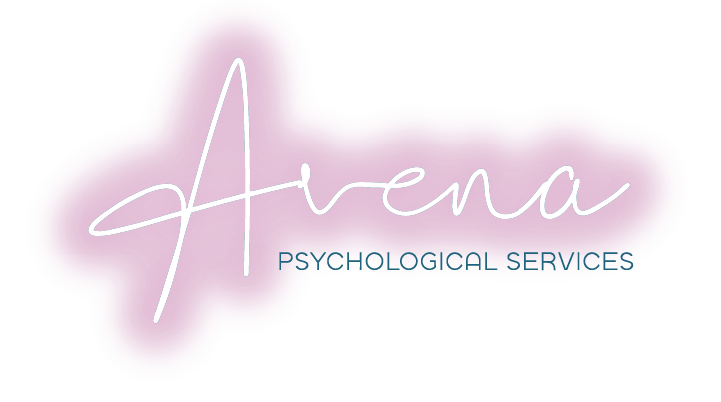Ah, the New Year. A time of reflection, resolutions, and, for some of us, an all-too-familiar existential dread creeping in like a surprise guest to your party.
You’re not alone if you’ve felt it—that gnawing sensation in your gut whispering, What am I even doing with my life?
Let’s unpack what existential dread is, why it shows up, and most importantly, how to manage these feelings as you head into a fresh year full of unknowns.
What Is Existential Dread, Anyway?
Existential dread is that sinking feeling when you start questioning the meaning of life, your purpose, or the seemingly infinite nature of the universe. It’s a classic “big picture” crisis, where thoughts about mortality, freedom, and the unknown collide in a mental whirlwind.
It’s totally normal to experience existential dread—especially at times of transition like the New Year. After all, flipping the calendar feels like a forced checkpoint for evaluating life choices.
The good news? There are ways to navigate it without spiraling into despair.
1. Why the New Year Amplifies Existential Dread
The New Year is a time of possibility, but it’s also a time when we reflect on where we’ve been and where we’re going. This can trigger existential questions like:
- Am I living the life I truly want?
- Have I wasted another year?
- What if nothing changes?
These thoughts are normal, but they can easily snowball if we get stuck in a loop of self-doubt or overwhelm.
Recognizing this pattern is the first step to breaking free.
2. How to Manage Existential Dread
While existential dread can feel heavy, it doesn’t have to take over. Here’s how to face it head-on:
1. Focus on the Present Moment
When your mind starts spiraling into what-ifs about the future, pause and ground yourself. Breathe deeply, notice your surroundings, and remind yourself that the only moment you can truly control is right now. Practicing mindfulness—even for five minutes a day—can help ease anxious thoughts.
2. Reframe Your Thoughts
Instead of seeing existential dread as a crisis, treat it as an invitation to reflect and grow. What can these feelings teach you? Maybe it’s time to realign your goals or let go of something that’s no longer serving you. Dread can be uncomfortable, but it often points to areas in our lives that need attention.
3. Set Small, Meaningful Goals
Big questions like “What’s my purpose?” can feel paralyzing. Instead, break them down into smaller, actionable steps. For instance, if you’re yearning for more meaning, try volunteering, picking up a new hobby, or reconnecting with old friends. Purpose doesn’t have to be grand—it’s built from small, consistent actions.
4. Limit Overthinking Time
It’s okay to sit with your thoughts, but don’t let them monopolize your mental energy. If you find yourself overanalyzing at night, set a timer and give yourself 15–20 minutes to journal or reflect. After that, redirect your focus to something uplifting, like a book or your favorite playlist.
5. Seek Support
Sometimes, we just need to talk it out. Whether it’s with a trusted friend, a therapist, or even an online support group, sharing your feelings can lighten the load. Chances are, others have felt the same way, and hearing their perspective can be comforting.
3. Turning Dread Into Hope
It might sound cliché, but existential dread has a silver lining: it reminds us that we care deeply about living a fulfilling life. Instead of fearing the unknown, try reframing it as an opportunity. A new year means new chances to create, connect, and explore.
Here’s the trick: You don’t need to have all the answers right now. Life isn’t a test—it’s an ongoing process of discovery.
And guess what? It’s okay to stumble along the way.
4. Tips for Entering the New Year with Confidence
To keep existential dread at bay, focus on creating an intentional and balanced start to the year:
- Simplify your resolutions: Instead of a long list of lofty goals, choose one or two areas to focus on.
- Celebrate progress: Reflect on the growth you’ve made this past year, no matter how small.
- Stay connected: Surround yourself with supportive people who lift you up.
Remember, the New Year isn’t about achieving perfection—it’s about continuing the journey with curiosity and compassion.
FAQs About Existential Dread
- What is an example of existential anxiety?
Existential anxiety often stems from big-picture questions, like “What’s the point of life?” or “What happens after death?” It’s the uneasy feeling that arises when we confront these unknowns.
- What are existential dread ideas?
Common existential dread ideas include fears about mortality, uncertainty about one’s purpose, or feeling insignificant in the vastness of the universe.
- What is existential terror?
Existential terror refers to the intense fear or panic that can arise when thinking about life’s uncertainties, freedom, or mortality. It’s a deeper, more acute version of existential dread.
- How long does existential dread last?
The duration of existential dread varies—it can be fleeting or linger for days, weeks, or longer. However, addressing it through mindfulness, reflection, and support can help alleviate its intensity.
- Can existential dread be a good thing?
Yes! While it can feel uncomfortable, existential dread often signals a desire for growth and self-discovery. It can inspire meaningful changes and a deeper appreciation for life.
Final Thoughts
Existential dread is a natural part of the human experience—especially during times of reflection like the New Year. Instead of running from it, lean in with curiosity and kindness.
By grounding yourself in the present, setting small goals, and seeking support, you can turn those overwhelming questions into a source of inspiration and growth.
This New Year, remember: You don’t need to have it all figured out.
Take it one step at a time, and trust that the journey is just as important as the destination. Here’s to a year of embracing the unknown and finding joy along the way!
Contact us to schedule an appointment with a professional in New York or New Jersey.

